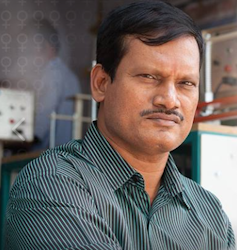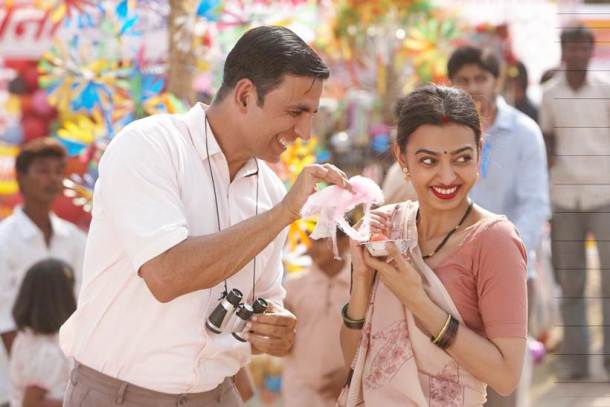PADMAN
Lakshmikant
"Laxmi" Chauhan (Akshay Kumar) and Gayatri (Radhika Apte) are leading a happily married life. When Gayatri is temporarily banished from the
household during her menstrual periods, Laxmi is caught unaware due to his lack
of knowledge about the subject. He became worried after seeing Gayatri use an unhygienic
rag during her periods. Gayatri tells him he should not interfere in this
feminine topic. Undeterred, Laxmi buys sanitary pads for his wife, which are
rather costly. When he realizes how unhappy his wife is with their expenses on
sanitary pads, Laxmi buys some cotton, cloth, and glue and makes temporary pads,
which he thinks is a better replacement for the costly one.

It’s been more than ten years since Arunachalam invented a machine to create low cost sanitary pads and began distributing them to rural women across India. Traditionally, rural women use old cloth, saris or bed sheets as sanitary towels; sometimes also using sand, dirt or ash for heavy days. The use of pads is increasing and now six out of ten in India have access to disposable menstrual products.
Indian films about self-hygiene.
How ironic.
Nevertheless, it is films like these that help with awareness toward a subject matter, and those kinds are important to society. Especially like in India, where the Bollywood industry is put on such a high pedestal, its platform provides the public to notice such issues, and recognise its severity. Another similar movie to this I might add is Toilet: Ek Prem Katha, which spreads awareness on the lack of washrooms in certain rural villages in India, and how it affects the society, especially women.
Moving on, when I first
watched this, I was taken aback with how the setting of this movie was not even that long ago,
in fact it was in the late 90’s. For those of you who are unaware (like me),
this is inspired by the life of social activist Arunachalam a social entrepreneur from Tamil Nadu. This is actually a true tale, of a man
who found out how unhygienic women can get during their menses. In fact, at
that time of the month, these women were not allowed to stay in their houses
and slept outside most of the time. This was presumed to be normal, in 1998, in
rural India. That is horrific to think about, being a woman myself. Menstruation
sanitary products were always available, even the mere thought of them not
being there scares the life out of me.
Thus, the main point to be conveyed was the plot itself. Which I thought was well executed. The story came through and showed the success of Arunachalam and that is the main reason people watch films like this, to see light at the end of the dark tunnel the society portrayed lives in.

.png?itok=1Edb9jXf)

Comments
Post a Comment